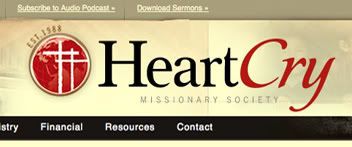
The Cross: God’s Way of Salvation
Martyn Lloyd-Jones, Crossway Books, 1986, 224 pages, $12 (paperback)
Few books have impacted me emotionally as “The Cross” by D. Martin Lloyd-Jones. The first 100 pages flew by me late one Wednesday night leaving behind a small, broken man on the floor crying out in worship and thanksgiving. Page by page Mr. Lloyd-Jones, like a jeweler examining a diamond in the light, shows the reader different beautiful facets of the cross – that antinomy of the terrible and beautiful together. In this brief outline, I’ve decided to let Lloyd-Jones’ own words do most of the work to show the beauty and message of this book.
The book begins by explaining that the cross is what the apostles gloried in, and how Jesus’ life and teaching make no sense preached apart from the shadow of the cross.
“Now at the risk of being misunderstood I will put it like this: It is not primarily the teaching of our Lord. I say that, of course, because there are so many today who think that this is Christianity. They say, ‘What we need is Jesus’ teaching. He is the greatest religious genius of all times. He is above all philosophers. Let us have a look at His teaching, at the Sermon on the Mount and so on. That is what we want.’ ‘What the world needs today,’ they say, ‘is a dose of the Sermon on the Mount; a does of his ethical teaching. We must preach this to people and teach them how to live.” But according to the apostle, Paul, this is not their first need. And I will go further. If you only preach the teaching of the Lord Jesus Christ, not only do you not solve the problem of mankind, but in a sense you aggravate it. You are preaching nothing but utter condemnation, because nobody can ever carry it out. So they did not preach His teaching. Paul does not say, ‘God forbid that I should glory, save in the Sermon on the Mount’ or ‘God forbid that I should glory save in the ethical teaching of Jesus’. He does not say that. It was not the teaching of Christ, nor the example of Christ either. What they preached was His death on the cross and the meaning of that event.” pp. 20-21
We see in Proverbs 17:15 that anyone who justifies a wicked man is an abomination to God, but later in Romans 4:5 we find Paul glorying that God has done that very thing – justified the wicked! How do we unlock these two contradictory statements? The cross is the key. A large and wonderful portion of this work is dedicated to the question posed to Spurgeon’s listeners 100 years prior, ‘How can a holy and just God forgive sinners without becoming an abomination to Himself?’
“No, we do not understand the righteousness of God. That is why modern man does not believe in the blood of the cross. He does not know what righteousness is. He does not know what justice is or what law is. He does not believe in discipline, and his world is becoming a hell for that reason. But God is righteous, he is the law giver, he is holy, he is of so pure a countenance that he cannot even look upon sin; and God cannot pretend that he has not seen it. God sees sin. He sees everything. He must punish sin. His own holy nature insists upon it and he has told us abundantly that he is going to do so. So here is the problem. Man is a guilty sinner, God is a holy God. How can the two be brought together? The answer is the cross of Christ.
…So what was happening on the cross was that God himself was laying your sins and mine upon his dearly beloved Son, and he paid the penalty of our guilt and our transgressions. “For he made him to be sin for us, who knew no sin; that we might be made the righteousness of God in him” (2Cor. 5:21). “The Lord has laid on him the iniquity of us all” (Isaiah 53:6). That is what the Father did. What did the son do? He was passive as a lamb, he did not grumble, he did not complain. He took it all upon him. He allowed it to happen. He surrendered himself deliberately and freely.
“Who gave himself for (on behalf of) our sins, that he might deliver us from this present evil world, according to the will of God and our Father” (Galatians 1:4). But still more wonderfully, in Galatians 2:20, “I am crucified with Christ: nevertheless I live; yet not I, but Christ lives in me: and the life which I now live in the flesh I live by the faith of the Son of God, who loved me, and gave himself for me.” pp. 32-33
The book is also a call for examination, echoing Paul’s own exhortation in 1st Cor. 13:5 to examine and test ourselves to make sure of our calling and election.
'The word 'glory' at once tells us at once that the cross of our Lord Jesus Christ is the test of every one of us. It is the test of our profession of Christianity. It is the test of our church membership, indeed, of our whole position and profession. There is no more subtle test of our understanding than our attitude to the cross of our Lord Jesus Christ. In other words, the cross passes judgment on us all, immediately and of necessity. You cannot remain neutral in the presence of the cross. It has always divided mankind and still does. And what the apostle says is that there are ultimately only two positions with respect to it. The cross of our Lord Jesus Christ is either an offense to us or else it is the thing above everything else in which we glory.
My dear friends, there never can be a more important question than this: what does the cross do to you? Where do you find yourself as you think of it and face it? It is one of these two, it is either an offense or else you glory in it. Are we all clear about our position? Do we know exactly where we stand? There are some perhaps saying, 'Well quite certainly it is not an offense, to me, but I am afraid I cannot say I glory in it.' Well, my friend, you are in an impossible position. There are only two positions - offense or glory. As we value our immortal souls, let us examine the matter, let us look into it, let us see what the apostle has got to tell us here, and elsewhere in his writings, about these two positions, in order that we may know for sure." pp. 41-42
The book goes on to discuss the power of the cross whereby it was (and is) the means of the devil’s defeat, the amazing regeneratory strength of the cross whereby filthy, vile sinners can have peace with God, and the infinite worth of the cross whereby the Son of God gave up his very communion with His Father to save those who hated him. At the same time, Lloyd-Jones glories in his admission that there is SO much more to that great cross than we will ever know.
Although considered one of the greatest preachers of the 20th century, surprisingly very few people outside the theological academy know of this great man and his writings. I am partial to think we can attribute this to peddling shallow, superficial and some down right worthless books in an attempt to simplify and “dumb down” truth in an effort to reach our increasingly dim church members. There are several deeply theological authors who are very readable and accessible to people of all walks of life, and Lloyd-Jones is one of them – Spurgeon also coming immediately to mind.
A concise work from a man not usually known for brevity (he has a 14 volume commentary on Romans!), I would (and will) recommend this book to all my friends, saved or lost. It’s a priceless work on the most important subject.



















No comments:
Post a Comment